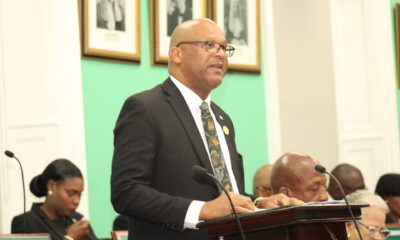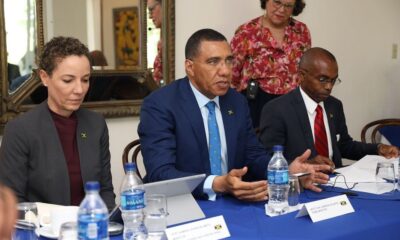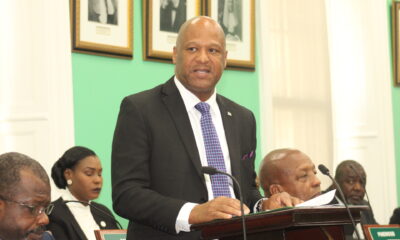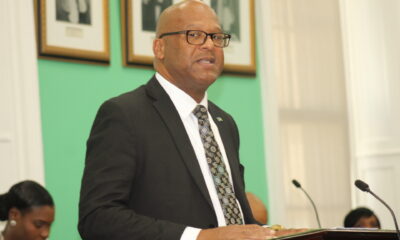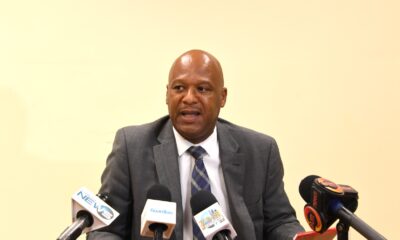By Stirling Strachan
Bahamas Information Services
NASSAU, The Bahamas — “This Budget is not just a national document,” said the Hon. Keith Bell Minister of Housing and Urban Renewal during his contribution to the 2025/26 budget debate in the House of Assembly, June 17. “It is a tool to support and strengthen our work in communities like Carmichael. It reflects the values, aspirations and real needs of the people I represent.
First and foremost, Minister Bell said, this budget seeks to respond to the very real pressures Bahamians are facing from the rising cost of living. It does so in a practical, targeted and fiscally responsible way.
“This Budget extends the list of VAT-reduced items. Providing much needed relief at the grocery store and at the cash register.”
“Let me be clear,” Minister Bell said, “this is not just about one or two token items like corned beef. This is an extensive list carefully designed to bring broad-based relief to working families.”
Here is what’s most important. Minister Bell said, “We are doing it without raising taxes elsewhere.”
In recent months, electricity bills have come down, not because of talk, but because of real, tangible reform, said Minister Bell.
“This budget takes those reforms even further. It introduces duty waivers for individuals purchasing high-efficiency appliances, making it more affordable for families to reduce their energy consumption.” The result is simple, “lower electricity bills and more money left in the pockets of hardworking Bahamians.”
Affordable housing must go beyond simply moving families into far-off developments, said Minister Bell. “We must also focus on strengthening the communities they already call home, where families have roots, churches, schools and support systems.”
In his constituency of Carmichael, Minister Bell announced that the government has acquired approximately four acres of land on Vispen Road off St. Vincent Road for the development of a new government subdivision in Carmichael.
“This will mark the first addition of new government housing in the constituency in decades. The site will accommodate more than 40 affordable homes and we expect to commence construction of the first homes shortly. We have secured the Certificate of Environmental Clearing and the land has already been cleared.
“The new housing subdivision will feature three-bedroom, two-bathroom homes, as well as two-bedroom, one-bathroom homes. All will feature quality finishes including 40-year warranty architectural shingles, hurricane impact grade windows and much more.”
feature quality finishes including 40-year warranty architectural shingles, hurricane impact grade windows and much more.”
On a much wider scale, he stated: “Across our archipelago, thousands of Bahamian families are still waiting — waiting for a place to call their own. For far too many, homeownership feels like a distant dream, out of reach due to high costs, limited availability, and systemic barriers. “The data is clear: we are facing a housing deficit that is widening with each passing year. The 2020 Census confirmed what we see every day — multiple generations crowded under one roof, young families priced out of the market, and growing frustration among those who simply want the dignity and stability that comes with having a decent home.
“This is not just an economic challenge. It is a social and moral one.
That is why this Davis-led Administration is methodically pursuing bold, innovative, and practical solutions to meet the housing needs of our people.”
The Housing Minister explained: “Our administration’s housing policy is not a collection of ad hoc ideas — it is a coherent, deliberate, and comprehensive strategy to expand access to affordable, quality housing across The Bahamas — and to do so in a way that is sustainable, inclusive, and grounded in dignity and opportunity.”
In the Blueprint for Change, he said, “we pledged to make housing a basic right — and we are delivering on that promise by expanding access to affordable homes through new subdivisions, rent-to-own programmes, and public-private partnerships.
“To deliver on this vision, Madam Speaker, we are building on eight interlocking pillars — each reinforcing the next to create a stronger, more resilient foundation for housing delivery: (1) the creation of new government subdivisions; (2) bringing derelict and underutilised properties to market; (3) duty reductions and targeted concessions; (4) public-private partnerships; (5) the Self-Build Housing Programme; (6) the overhaul of government rental units; (7) the Rent-to-Own Initiative; and (8) innovative funding mechanisms.
“These pillars are not political theatre. This is not a glossy report to be shelved or a set of promises for the distant future. This is a live programme of action — grounded in the present, rooted in the needs of real people, and already transforming lives across The Bahamas.”
(BIS Photos/Kemuel Stubbs)


 TCI News1 week ago
TCI News1 week ago
 News5 days ago
News5 days ago
 Bahamas News2 days ago
Bahamas News2 days ago
 News4 days ago
News4 days ago
 Bahamas News1 day ago
Bahamas News1 day ago
 News6 days ago
News6 days ago
 Caribbean News5 days ago
Caribbean News5 days ago
 Health1 day ago
Health1 day ago



